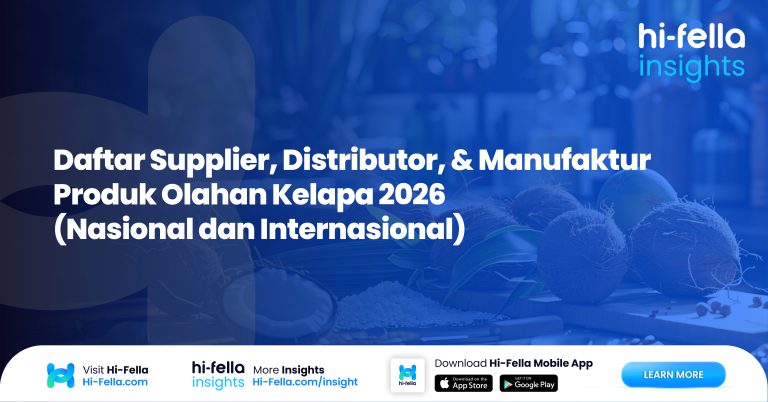In an ever-changing world, businesses continuously face unforeseen challenges and events. Disruptions are inevitable, whether it’s a global pandemic, technological advancements, or geopolitical shifts.
However, with the right approach, businesses can not only survive but thrive amidst these challenges. This article delves into the definition of disruption, its various forms, and practical strategies for effective disruption management.

Source: Pexels
The Definition of Disruption
Disruption means a big change that shakes things up. In the business definition of disruption, it’s when something new comes along and changes how things are done, like when smartphones changed the way we communicate.
In a business context, as articulated by Clayton M. Christensen in his book titled “The Innovator’s Dilemma,” disruption occurs when an innovation drastically shifts the market, often leading to the displacement of incumbent firms or products.
A prime example of this is the emergence of smartphones, which transformed the communication landscape and overshadowed conventional mobile phones.
It can be caused by new technology, a big event, or changes in what people want. Business disruptions can be tough, but they can also create chances for businesses to grow and do better.
What is Disruption Management?
Definition of Disruption and Significance
Disruption management refers to businesses’ planning, strategies, and actions to prepare for, respond to, and recover from unforeseen events or challenges that can impact their operations or markets.
The key is not just to manage but to adapt and evolve in response to these disruptions. According to Harvard Business Review, organizations that excel in disruption management often emerge stronger post-disruption.
Types of Business Disruptions
No matter how big or small, every business sometimes faces unexpected events or changes. These disruptions can come from many different places. Let’s dive deeper into each one:
Technological Disruptions

Source: Pexels
Technology keeps changing the way we live and work. Some of these tech ideas are:
- Artificial Intelligence (AI): These are like computer brains. They can think, learn, and sometimes even act like humans. Because of this, businesses are finding new ways to use them, like helping customers or making decisions.
- Blockchain: This is like a special kind of diary that everyone can see, but no one can cheat. Many businesses use it to keep records safe.
- Internet of Things (IoT): This is when everyday things (like fridges or cars) are connected to the internet. This helps them share information and work better.
Two big companies, Netflix and Uber, used these new tech ideas to change how we do things. Netflix lets us watch movies from our couch, while Uber lets us get a ride with a few clicks on our phone.
Economic or Business Disruptions

Source: Pexels
Sometimes, the world’s money situation changes suddenly. In 2008, a big money problem made many businesses lose a lot of money.
The World Bank says that when things like this happen, the whole world can feel it. This means businesses might sell less, people might lose jobs, or things might get more expensive.
Environmental Disruptions

Source: Pexels
Natural disasters, climate change, and pandemics are all environmental disruptions. For instance, the COVID-19 pandemic, as reported by BBC News, has dramatically impacted global supply chains and business operations.
Social Disruptions

Source: Pexels
Groups of people sometimes come together to make a change in society. Two big movements, #MeToo and Black Lives Matter, made businesses think about how they behave.
These movements remind businesses to treat everyone fairly and kindly. They show that a good business is not just about making money but also about caring for people.
In the end, surprises in business will always happen. But by understanding and preparing for them, businesses can get through the tough times and even find new ways to grow.
The Business Impact of Disruptions
Every now and then, something unexpected happens that can shake up how businesses work. We call these events “disruptions.” They can be a bit like a strong wind that suddenly pushes a boat off its course.
While these business disruptions can be tough, they also force entrepreneurs to think creatively and adapt, leading to new and sometimes better ways of doing things.
- Disruptions and Industry Evolution
Sometimes, whole industries need to change because of these disruptions. A good example is Kodak. They were once big leaders in the world of film photography. But when digital cameras came along, people didn’t need film anymore.
Kodak didn’t adapt quickly enough, and they faced a lot of difficulties. This story reminds businesses always to be ready for change.
- Economic Ramifications
When business disruptions happen, they can also hit our pockets hard. They might lead to fewer jobs or make people scared to spend money.
Also, the economy of a whole country can slow down. The International Monetary Fund – a big group that looks after global money matters – pointed out how a big event, like a worldwide sickness, can make many countries’ economies suffer.
Navigating Disruptions Management: Strategies for Success

Source: Pexels
- Scenario Planning
It’s like when we check the weather forecast before going on a trip. Businesses try to guess what might happen in the future.
By doing this, they can think of plans for different situations. Experts at McKinsey & Company, a big business advisory group, say that this way of planning is very important when dealing with disruptions.
- Embracing Innovation
Being innovative means always looking for new and better ways to do things. It’s not just about cool gadgets. It’s a way of thinking.
Look at Apple! They’re always trying to come up with the next big thing, and this thinking helps them stay ahead even when disruptions happen.
- Building Agility
Imagine if businesses were like athletes. The faster and more ready they are, the better they can handle surprises.
Being agile means that a business can quickly change its plan if needed. This is especially helpful during uncertain times.
Conclusion
Business disruptions for big or small companies will always happen. But, with the right mindset and strategies, businesses can face these challenges and find opportunities to grow and thrive.
Also, the landscape of business is constantly changing, and having the right tools and connections can make all the difference.
With Hi-Fella, you’re not just getting a digital platform – you’re joining a global community that’s ready to support, collaborate, and innovate.
Whether you want to expand your network, secure new partnerships, or simply elevate your brand, Hi-Fella offers a unique space where ambition meets opportunity. Don’t just navigate disruptions. Embrace them with Hi-Fella by your side. Join us today!








